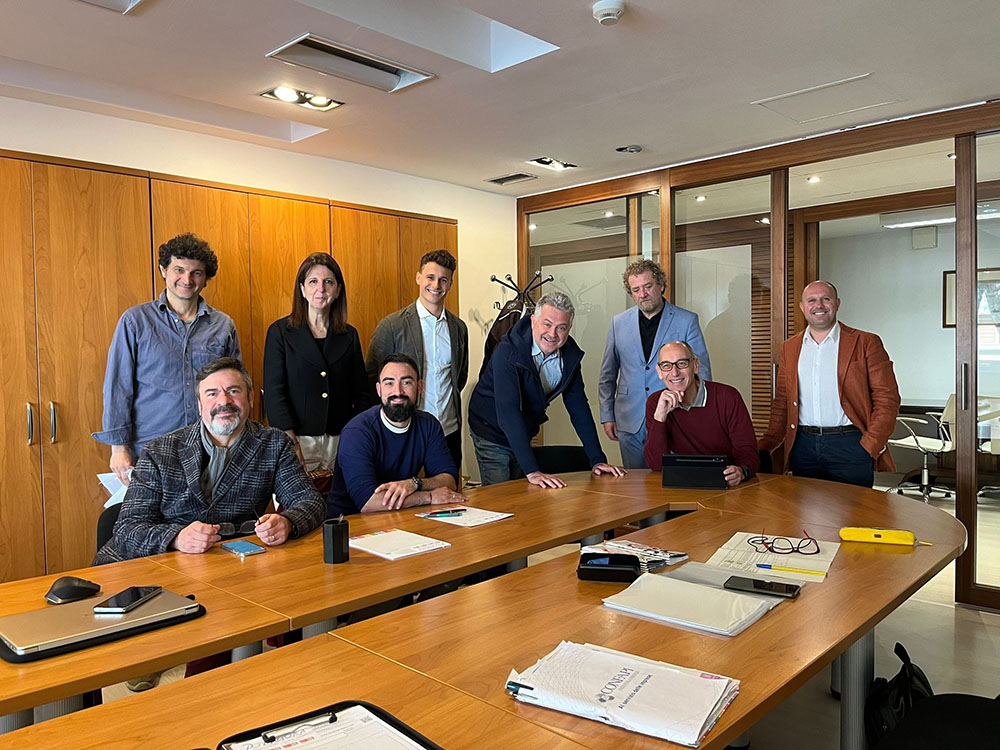An experimental agri-voltaic plant that combines renewable energy generation with agricultural activities for a social purpose was presented on Friday, May 24, in Florence, via Bolognese. The project was coordinated by Confapi Firenze, in collaboration with the departments of Industrial Engineering and Agricultural, Food, Environmental and Forestry Sciences and Technologies of the University of Florence, and ANFFAS Onlus Florence.
The initiative involves the installation of elevated photovoltaic panels on land planted with olive trees, creating new protected agricultural spaces for the cultivation of other crops such as cherries, potatoes and strawberries. These products will be destined for the canteen of ANFFAS Onlus Florence’s shelter homes, thus promoting a zero-kilometer supply chain. Silvia Casati, vice president of Confapi and coordinator of the project, said, “This project unites and brings together three fundamental sectors-renewable energy, agriculture, and social work. It is a concrete demonstration that circular systems, which put people at the center, can be realized. The integration of these different areas not only promotes environmental sustainability, but also contributes to community well-being by enhancing local resources and supporting people with disabilities.”
The project fits perfectly into ministerial guidelines for the development of photovoltaic systems on agricultural land, solving the problem of using land for energy production without compromising agricultural activity. Solar panels mounted on elevated supports allow the underlying land to be cultivated, minimizing shading and creating a favorable microclimate.
The realization of the plant required the collaboration of several entities with specialized expertise: the research groups of Professors Carcasci and Pacini of the University of Florence for the feasibility study, Attorney Giampaolo Pacini for the legal aspects, Fabrizio Bertini of Studio Associato Geotec for the architectural design, and CIEM Impianti Srl for the technical feasibility analysis.
The ultimate goal is to maximize land use, enabling both agricultural cultivation and energy production, contributing to environmental sustainability and the well-being of the local community.













